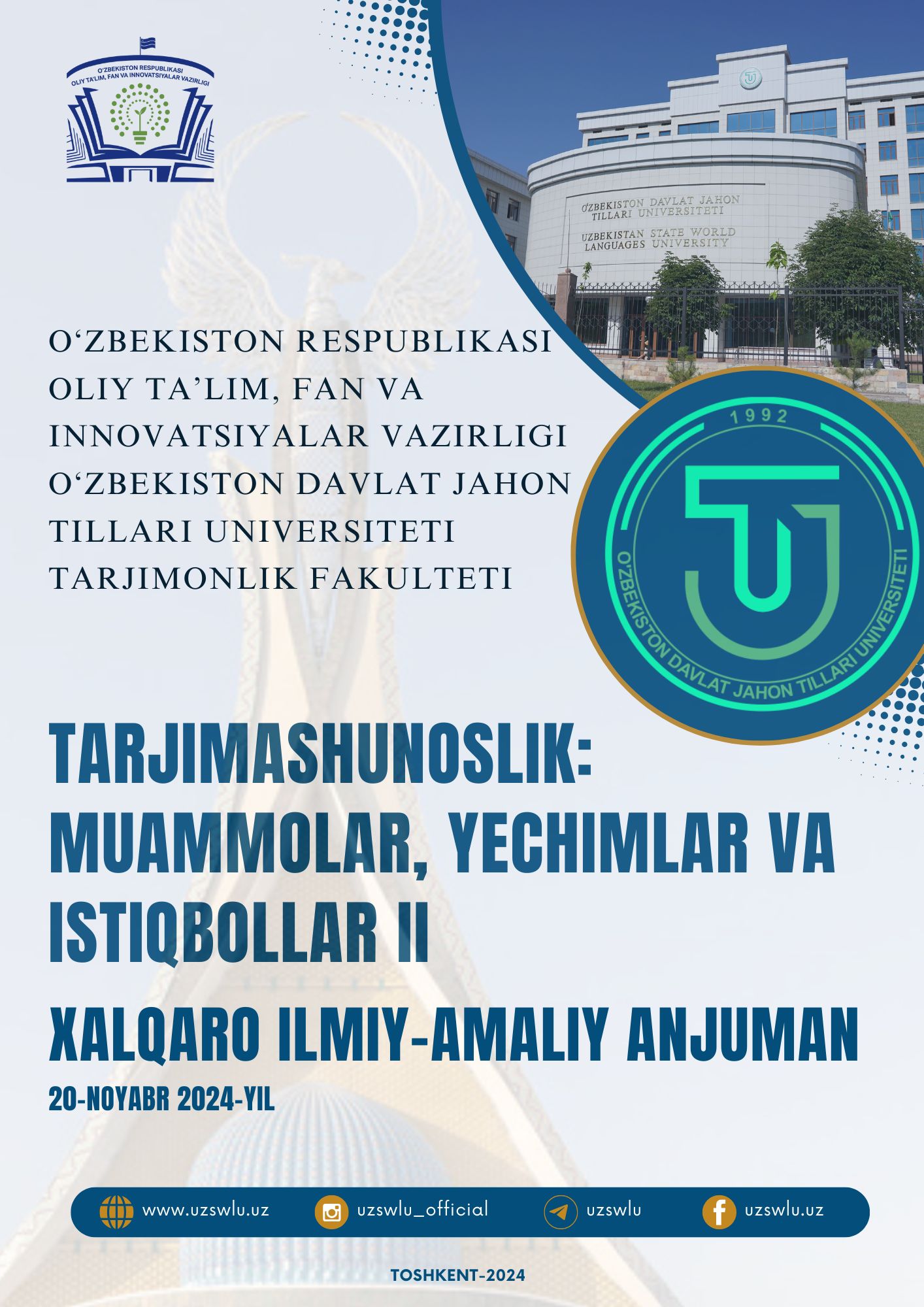FORMATION OF STUDENTS’ INTERCULTURAL COMPETENCE THROUGH COMMUNICATIVE AND ETHNOGRAPHIC APPROACHES
Kalit so‘zlar
Intercultural competence, communicative approach, ethnographic approach, students, education, culture, tolerance.Annotasiya
The article examines the formation of students’ intercultural competence through the use of communicative and ethnographic approaches in the educational process. Intercultural competence is an important component of preparing students for successful interaction in a global society. The communicative approach focuses on the practice of effective communication with representatives of different cultures, and the ethnographic approach helps to better understand the peculiarities of culture and traditions of other peoples. Combining these approaches contributes to the development of students’ skills of intercultural awareness, tolerance and the ability to cooperate.
Foydalanilgan adabiyotlar ro‘yhati
Byram M. Teaching and Assessing Intercultural Communicative Competence. Multilingual Matters. 1997. – 155 p.
Gilyazetdinov E.Z. Bikul’turnaya lichnost’ budushego perevodchika // Aktual’nie problemi lingvistiki, perevodovedeniya i pedagogiki. 2014. № 1. S. 33-37.
Gilyazetdinov E.Z. Mediagramotnost’– osnova formirovaniya yazikovoy lichnosti budushego perevodchika //BBK 81.001. 1ya431+ 76.00 ya431 M 43. – 2013. – S. 20-25.
Gilyazetdinov E.Z. Prioritetnie zadachi rechevoy deyatel’nosti i professional'noy kompetensii budushego perevodchika //BBK 67ya431 G72. – 2017. – S. 712-716.
Kramsch C. Context and Culture in Language Teaching. Oxford University Press. 1993. – 150 p.

